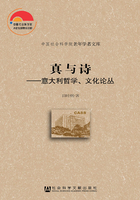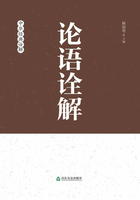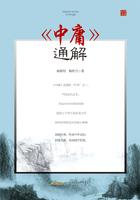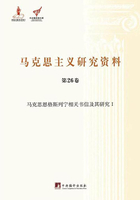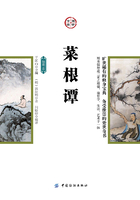Begin the morning by saying to thyself,I shall meet with the busy-body,the ungrateful,arrogant,deceitful,envious,unsocial.All these things happen to them by reason of their ignorance of what is good and evil.But I who have seen the nature of the good that it is beautiful,and of the bad that it is ugly,and the nature of him who does wrong,that it is akin to me,not only of the same blood or seed,but that it participates in the same intelligence and the same portion of the divinity,I can neither be injured by any of them,for no one can fix on me what is ugly,nor can I be angry with my kinsman,nor hate him.For we are made for co-operation,like feet,like hands,like eyelids,like the rows of the upper and lower teeth.To act against one another then is contrary to nature;and it is acting against one another to be vexed and to turn away.
Whatever this is that I am,it is a little flesh and breath,and the ruling part.Throw away thy books;no longer distract thyself:it is not allowed;but as if thou wast now dying,despise the flesh;it is blood and bones and a network,a contexture of nerves,veins,and arteries.See the breath also,what kind of a thing it is,air,and not always the same,but every moment sent out and again sucked in.The third then is the ruling part:consider thus:Thou art an old man;no longer let this be a slave,no longer be pulled by the strings like a puppet to unsocial movements,no longer either be dissatisfied with thy present lot,or shrink from the future.
All that is from the gods is full of Providence.That which is from fortune is not separated from nature or without an interweaving and involution with the things which are ordered by Providence.From thence all things flow;and there is besides necessity,and that which is for the advantage of the whole universe,of which thou art a part.But that is good for every part of nature which the nature of the whole brings,and what serves to maintain this nature.Now the universe is preserved,as by the changes of the elements so by the changes of things compounded of the elements.Let these principles be enough for thee,let them always be fixed opinions.But cast away the thirst after books,that thou mayest not die murmuring,but cheerfully,truly,and from thy heart thankful to the gods.
Remember how long thou hast been putting off these things,and how often thou hast received an opportunity from the gods,and yet dost not use it.Thou must now at last perceive of what universe thou art a part,and of what administrator of the universe thy existence is an efflux,and that a limit of time is fixed for thee,which if thou dost not use for clearing away the clouds from thy mind,it will go and thou wilt go,and it will never return.
Every moment think steadily as a Roman and a man to do what thou hast in hand with perfect and simple dignity,and feeling of affection,and freedom,and justice;and to give thyself relief from all other thoughts.And thou wilt give thyself relief,if thou doest every act of thy life as if it were the last,laying aside all carelessness and passionate aversion from the commands of reason,and all hypocrisy,and self-love,and discontent with the portion which has been given to thee.Thou seest how few the things are,the which if a man lays hold of,he is able to live a life which flows in quiet,and is like the existence of the gods;for the gods on their part will require nothing more from him who observes these things.
Do wrong to thyself,do wrong to thyself,my soul;but thou wilt no longer have the opportunity of honouring thyself.Every man's life is sufficient.But thine is nearly finished,though thy soul reverences not itself but places thy felicity in the souls of others.
Do the things external which fall upon thee distract thee? Give thyself time to learn something new and good,and cease to be whirled around.But then thou must also avoid being carried about the other way.For those too are triflers who have wearied themselves in life by their activity,and yet have no object to which to direct every movement,and,in a word,all their thoughts.
Through not observing what is in the mind of another a man has seldom been seen to be unhappy;but those who do not observe the movements of their own minds must of necessity be unhappy.
This thou must always bear in mind,what is the nature of the whole,and what is my nature,and how this is related to that,and what kind of a part it is of what kind of a whole;and that there is no one who hinders thee from always doing and saying the things which are according to the nature of which thou art a part.
Theophrastus,in his comparison of bad acts-such a comparison as one would make in accordance with the common notions of mankind-says,like a true philosopher,that the offences which are committed through desire are more blameable than those which are committed through anger.For he who is excited by anger seems to turn away from reason with a certain pain and unconscious contraction;but he who offends through desire,being overpowered by pleasure,seems to be in a manner more intemperate and more womanish in his offences.Rightly then,and in a way worthy of philosophy,he said that the offence which is committed with pleasure is more blameable than that which is committed with pain;and on the whole the one is more like a person who has been first wronged and through pain is compelled to be angry;but the other is moved by his own impulse to do wrong,being carried towards doing something by desire.
Since it is possible that thou mayest depart from life this very moment,regulate every act and thought accordingly.But to go away from among men,if there are gods,is not a thing to be afraid of,for the gods will not involve thee in evil;but if indeed they do not exist,or if they have no concern about human affairs,what is it to me to live in a universe devoid of gods or devoid of Providence? But in truth they do exist,and they do care for human things,and they have put all the means in man's power to enable him not to fall into real evils.And as to the rest,if there was anything evil,they would have provided for this also,that it should be altogether in a man's power not to fall into it.Now that which does not make a man worse,how can it make a man's life worse? But neither through ignorance,nor having the knowledge,but not the power to guard against or correct these things,is it possible that the nature of the universe has overlooked them;nor is it possible that it has made so great a mistake,either through want of power or want of skill,that good and evil should happen indiscriminately to the good and the bad.But death certainly,and life,honour and dishonour,pain and pleasure,all these things equally happen to good men and bad,being things which make us neither better nor worse.Therefore they are neither good nor evil.
How quickly all things disappear,in the universe the bodies themselves,but in time the remembrance of them;what is the nature of all sensible things,and particularly those which attract with the bait of pleasure or terrify by pain,or are noised abroad by vapoury fame;how worthless,and contemptible,and sordid,and perishable,and dead they are-all this it is the part of the intellectual faculty to observe.To observe too who these are whose opinions and voices give reputation;what death is,and the fact that,if a man looks at it in itself,and by the abstractive power of reflection resolves into their parts all the things which present themselves to the imagination in it,he will then consider it to be nothing else than an operation of nature;and if any one is afraid of an operation of nature,he is a child.This,however,is not only an operation of nature,but it is also a thing which conduces to the purposes of nature.To observe too how man comes near to the deity,and by what part of him,and when this part of man is so disposed.
Nothing is more wretched than a man who traverses everything in a round,and pries into the things beneath the earth,as the poet says,and seeks by conjecture what is in the minds of his neighbours,without perceiving that it is sufficient to attend to the daemon within him,and to reverence it sincerely.And reverence of the daemon consists in keeping it pure from passion and thoughtlessness,and dissatisfaction with what comes from gods and men.For the things from the gods merit veneration for their excellence;and the things from men should be dear to us by reason of kinship;and sometimes even,in a manner,they move our pity by reason of men's ignorance of good and bad;this defect being not less than that which deprives us of the power of distinguishing things that are white and black.
Though thou shouldst be going to live three thousand years,and as many times ten thousand years,still remember that no man loses any other life than this which he now lives,nor lives any other than this which he now loses.The longest and shortest are thus brought to the same.For the present is the same to all,though that which perishes is not the same;and so that which is lost appears to be a mere moment.For a man cannot lose either the past or the future:for what a man has not,how can any one take this from him? These two things then thou must bear in mind;the one,that all things from eternity are of like forms and come round in a circle,and that it makes no difference whether a man shall see the same things during a hundred years or two hundred,or an infinite time;and the second,that the longest liver and he who will die soonest lose just the same.For the present is the only thing of which a man can be deprived,if it is true that this is the only thing which he has,and that a man cannot lose a thing if he has it not.
Remember that all is opinion.For what was said by the Cynic Monimus is manifest:and manifest too is the use of what was said,if a man receives what may be got out of it as far as it is true.
The soul of man does violence to itself,first of all,when it becomes an abscess and,as it were,a tumour on the universe,so far as it can.For to be vexed at anything which happens is a separation of ourselves from nature,in some part of which the natures of all other things are contained.In the next place,the soul does violence to itself when it turns away from any man,or even moves towards him with the intention of injuring,such as are the souls of those who are angry.In the third place,the soul does violence to itself when it is overpowered by pleasure or by pain.Fourthly,when it plays a part,and does or says anything insincerely and untruly.Fifthly,when it allows any act of its own and any movement to be without an aim,and does anything thoughtlessly and without considering what it is,it being right that even the smallest things be done with reference to an end;and the end of rational animals is to follow the reason and the law of the most ancient city and polity.
Of human life the time is a point,and the substance is in a flux,and the perception dull,and the composition of the whole body subject to putrefaction,and the soul a whirl,and fortune hard to divine,and fame a thing devoid of judgement.And,to say all in a word,everything which belongs to the body is a stream,and what belongs to the soul is a dream and vapour,and life is a warfare and a stranger's sojourn,and after-fame is oblivion.What then is that which is able to conduct a man? One thing and only one,philosophy.But this consists in keeping the daemon within a man free from violence and unharmed,superior to pains and pleasures,doing nothing without purpose,nor yet falsely and with hypocrisy,not feeling the need of another man's doing or not doing anything;and besides,accepting all that happens,and all that is allotted,as coming from thence,wherever it is,from whence he himself came;and,finally,waiting for death with a cheerful mind,as being nothing else than a dissolution of the elements of which every living being is compounded.But if there is no harm to the elements themselves in each continually changing into another,why should a man have any apprehension about the change and dissolution of all the elements? For it is according to nature,and nothing is evil which is according to nature.
This in Carnuntum.

